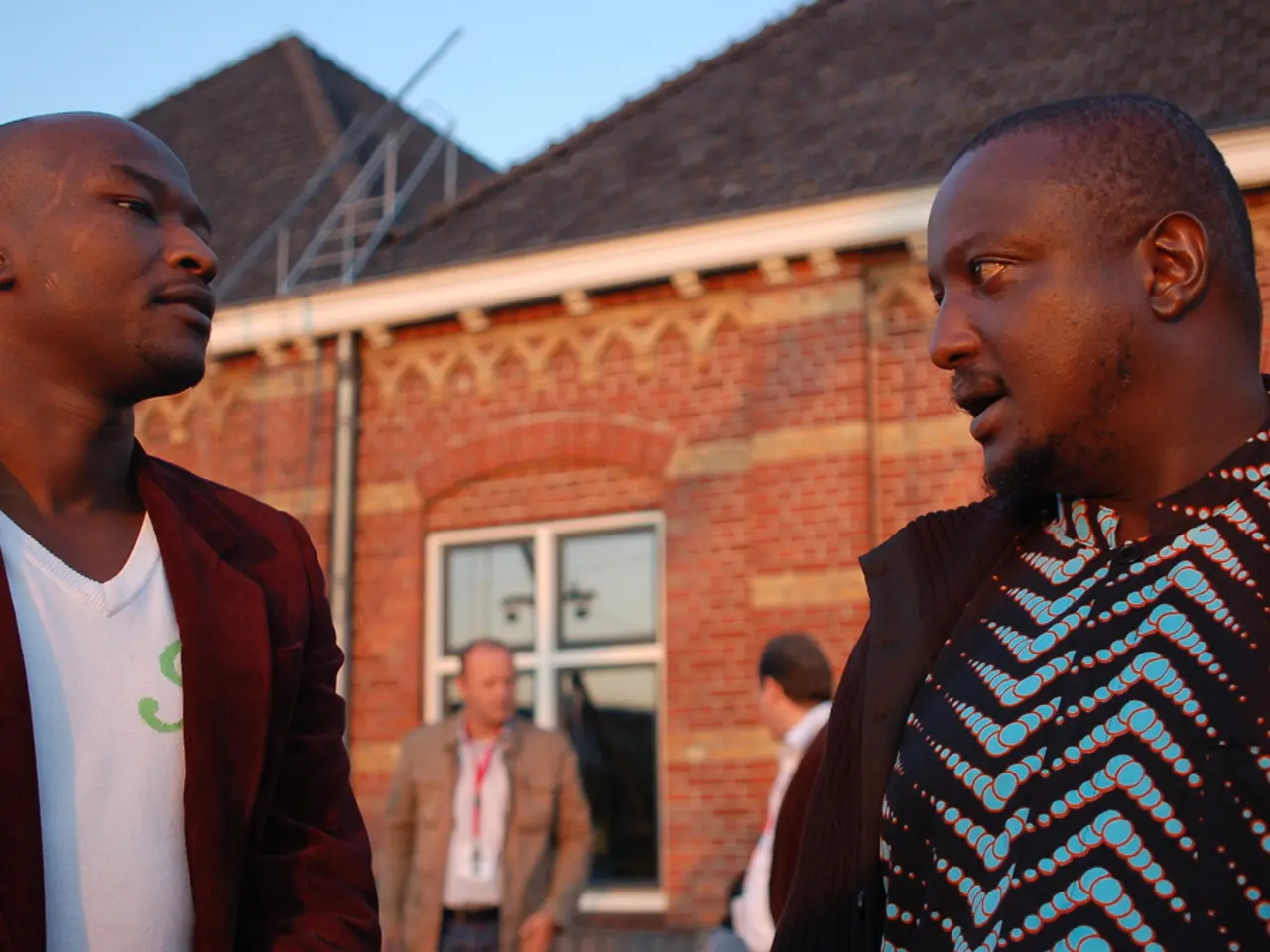A Congolese refugee's 8-year journey to reconnect with her kin in America
In a heartwarming reunion, a Congolese woman, who embarked on a 2,300-mile trek through southern Africa at the age of 15, was finally able to join her family in Boise, Idaho, more than a dozen years after they were resettled in the United States.
The woman's journey was fraught with challenges, including the COVID pandemic and bureaucratic delays. She made it into the U.S. during a brief block on the order, one of about 70 refugees to arrive since President Trump took office. However, Trump's administration's executive orders significantly impacted refugee resettlement, particularly during his second term starting January 2025.
Executive Order 14161, signed on January 20, 2025, enhanced immigration and refugee screening to prevent entry of individuals deemed security threats. This order mandated strengthening refugee screening and reevaluating visa programs, effectively freezing or slowing refugee admissions through more stringent processes.
Another significant impact came from the Suspension of the U.S. Refugee Admissions Program (USRAP) in January 2025, which temporarily halted refugee resettlement pathways including programs like the Welcome Corps. This pause led to legal challenges (Pacito v. Trump), with courts ordering partial resumption of refugee processing for some pre-approved cases.
The woman's case was one of those affected. Her mother fled the Democratic Republic of Congo's civil war in 1997 and sought shelter at Tanzania's Nyarugusu refugee camp. In 2017, her mother signed her up for the "follow to join" program. However, President Trump's signing of an executive order halting a U.S. program that reconnects refugees with family members already in the country, stranding the woman and thousands of others.
A federal judge temporarily blocked Trump's executive order in late February 2020. Yet, the administration created new roadblocks, including decreasing the time refugees' security screenings are valid to 30 days. This made the process even more challenging for the Congolese woman.
Despite these obstacles, the woman's case was eventually approved, and she was able to secure funding from a group of refugee advocates to cover her flight to the U.S. in March 2020. The woman's family met her at the airport in a joyful reunion more than a dozen years in the making.
The woman has since been getting to know her youngest brothers who were children when she left for South Africa. One of her brothers is now a father, and the woman is thrilled to be part of her family's life again. However, she asked that her name not be used because she fears retaliation.
This story serves as a poignant reminder of the challenges faced by refugees seeking to reunite with their families in the United States, and the impact of executive orders on their lives. Despite these challenges, the woman's determination and resilience have finally paid off, allowing her to be reunited with her family after years of separation.
- The government's policy-and-legislation, such as Executive Order 14161 signed on January 20, 2025, substantially influenced business operations of organizations assisting refugees, including the Welcome Corps.
- The general-news media covered the Congolese woman's immigration case extensively, highlighting her arduous journey and the subsequent impact of executive orders on refugee resettlement.
- In the wake of bureaucratic delays and COVID-19, California-based refugee advocates raised funds to cover the woman's transportation costs for her flight to Boise, Idaho.
- The woman's surgery for a leg ailment that she suffered during her trek through southern Africa was postponed multiple times due to the pandemic and immigration policy changes.
- Many political analysts, expressing their opinion on the matter, argue that the impact of the Trump administration's executive orders on refugee resettlement policies could have long-lasting implications, both domestically and in terms of the U.S.'s global standing.







